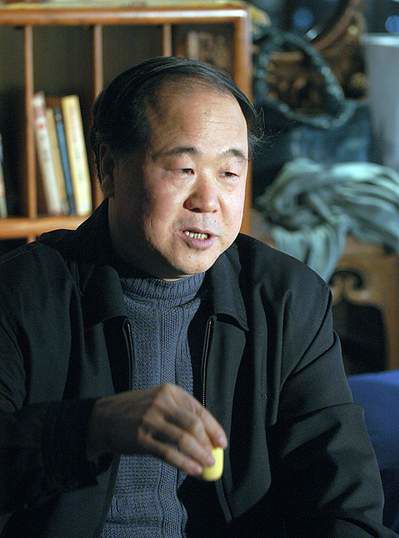Mo Yan, China’s ‘wild man’ of fiction, wins Nobel
Published 5:00 am Friday, October 12, 2012

- Chinese writer Mo Yan was a somewhat unexpected choice by a Nobel Prize committee that has favored European authors in recent years.
In recent years, the Nobel Prize in Literature has often gone to deserving but little-known and underpublished writers, setting off a scramble to reissue whatever might be available. This year, the prize has gone to a well-deserving and well-published writer: the “wild man” of Chinese fiction, Mo Yan, whose pen name means “Don’t speak.”
Announcing the prize Thursday, the Swedish Academy praised Mo Yan’s “hallucinatory realism,” which “merges folk tales, history and the contemporary.” The prize is worth about $1.2 million.
This is the first Nobel Literature award that China can openly celebrate. The only previous Chinese writer to receive the literature prize was Gao Xingjian, but he had moved to France by the time he won in 2000. The Dalai Lama and Liu Xiaobo have won Nobel Peace Prizes, but both those awards infuriated Chinese officials and strained relations between Beijing and Norway.
Over the past 25 years, Mo Yan (born in 1955 as Guan Moye) has been writing brutally vibrant stories about rural life in China that flout official Communist Party ideology and celebrate individualism. He also flouts literary conformity, spiking his earthy realism with fantasy and hallucination. Luckily for American readers, the majority of his flamboyant novels are available in translation, and a new one is forthcoming with the appealing title “Pow!”
Like many in his generation, Mo Yan experienced a tough upbringing: Born on a farm, he worked in a factory before joining the army, when he began writing. After that, he became a teacher in the People’s Liberation Army’s Cultural Academy and published his first novel in the early 1980s. His second novel, “Red Sorghum” (1986), was adapted for film the following year by director Zhang Yimou.
Mo Yan’s American translator, Howard Goldblatt, describes the writer as a quiet and thoughtful autodidact. “He’s very socially aware, and he’s got a strong social conscience,” Goldblatt said. “He’s very interested in Chinese society, in its good and bad forms. Controversy rages around him, but it no longer bothers him. He must have so much going on in his head that he doesn’t have time to deal with the outside world.”






